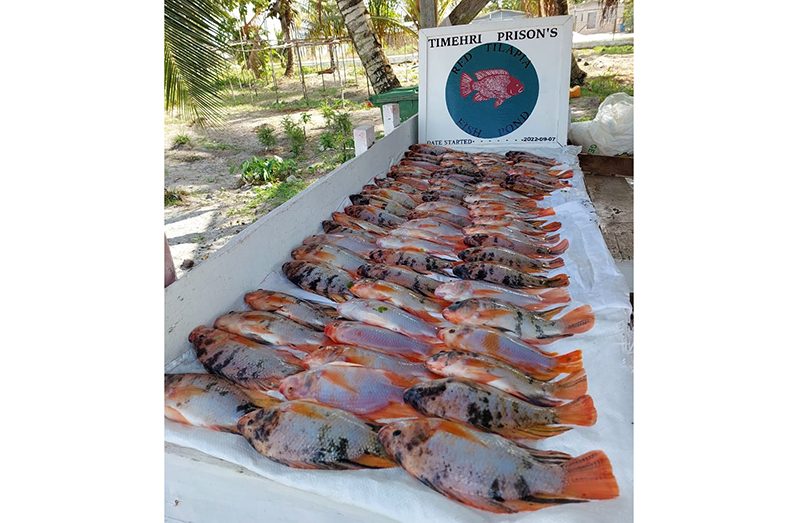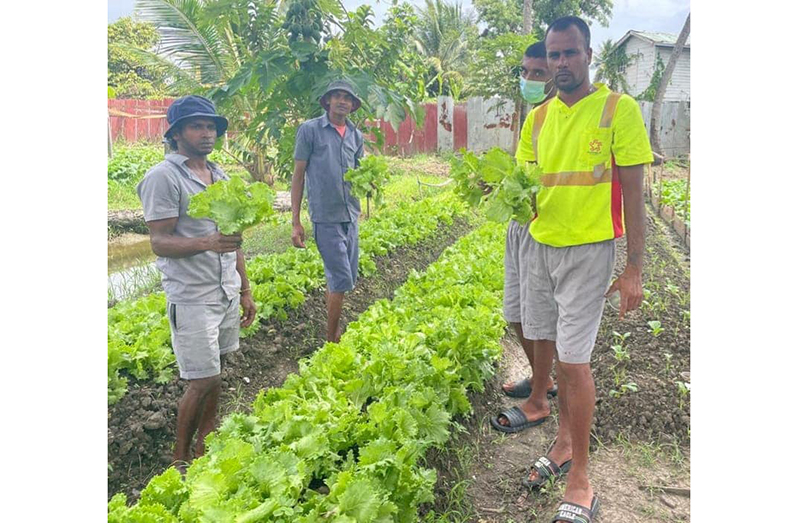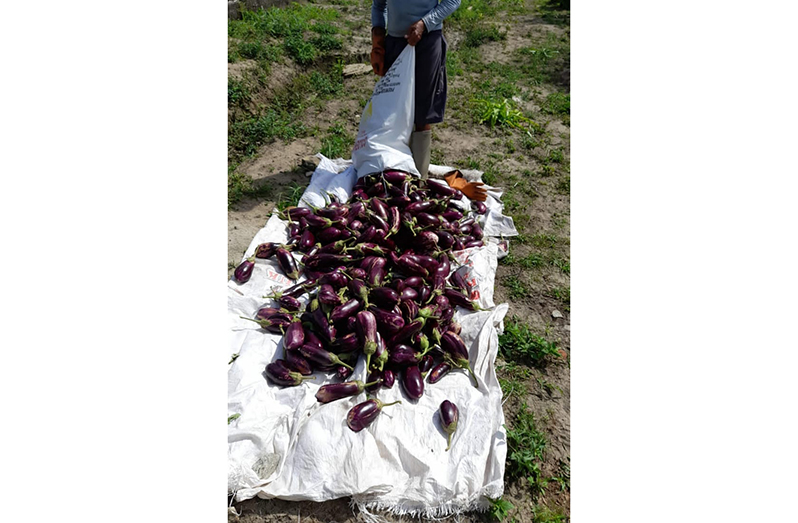INMATES have recorded immense success in the agricultural and tilapia programmes ongoing at the Lusignan, New Amsterdam, Mazaruni and Timehri prisons.
Regarding the agriculture programme, according to a press release from the Guyana Prison Service (GPS), Director of Prisons Nicklon Elliot said the programme is equipping inmates with skills in farming and animal husbandry.
Elliot related that large-scale farming represents a “strategic goal” to maximise yields from the GPS’ investment in the agricultural sector.
According to the Director of Prisons, the first quarter of this year was very productive since a total of 698 kilogrammes of Pak Choy were harvested, 666 pounds of Boulanger, 577 pounds of bora among other vegetables and fruits were also reaped across the various farming locations.
Additionally, the inmates reared cattle and pigs, resulting in production of 383 kilogrammess of meat. Eight hundred and thirty nine trays of eggs were also produced.
Farming is done at the New Amsterdam, Mazaruni, Lusignan and Timehri prisons with efforts being focused on ensuring that farms are utilised to adequately supply the needs of the prison population in the coming years.
Further, at the Timehri prison, staff and inmates harvested their second batch of Red Tilapia last Monday.
Officer-in-charge of the location, Assistant Superintendent of Prisons, Amias Benjamin, said while the project forms part of the efforts by the Guyana Prison Service (GPS) to boost its self-sustaining food-supply programme, it will also enhance the rehabilitation efforts accessible to the inmates.
“While the venture would also provide a great source of protein that would complement and enhance inmates’ diet, it would allow the inmates to be trained in aquaculture, in addition to the other programmes offered to the prisoners,” Benjamin said.
The GPS has embarked on an aquaculture initiative with the rearing of Red Tilapia at its Timehri Prison location last year. It is a pilot project of the prison module, spearheaded by the Satyadeo Sawh Aquaculture Station.
Elliot said the project clearly demonstrates that the GPS is extending its rehabilitation programmes and finding more ways to help prisoners develop their existing skills, or discover their skills and talents.



.jpg)










